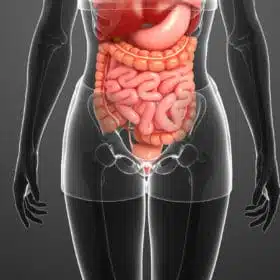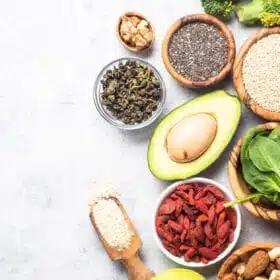Hardly any other subject area in the field of weight training is so fraught with myths as fat burning. Even though most of these myths have been scientifically disproved for a long time, every fine day on which the good Lord makes the sun rise, somewhere on this globe a self-proclaimed fitness guru rises up who digs up just such myths and propagates them anew so that they do not disappear from the memory of the fitness community. In order for you to recognize these myths and not sabotage your fat burning unnecessarily, we list below the nine biggest fat burning legends that definitely belong to the realm of myths.
Myth 1 - Frequent eating increases your metabolic activity
Although this myth is more persistent than any other, there is still no scientific evidence to support the assumption that metabolic activity increases with the number of meals eaten per day. Rather, the factual situation is that all studies published to date on this subject suggest that it is completely irrelevant for the total energy metabolism in a 24-hour period whether one large meal is eaten or alternatively 17 very small meals are consumed.
Myth 2 - Every meal must contain protein
It goes without saying that meeting the daily protein requirement of approx. 2 grams per kilogram of body weight is essential for both muscle building and fat loss. In return, however, this does not at all mean that every meal, no matter how small, must necessarily contain large amounts of protein. It's not counterproductive, but it doesn't bring any particular benefit either, since excess proteins are converted into energy just like carbohydrates and fats. So, don't panic if you miss a meal, because this alone will not cause you to lose valuable muscle mass, even on a diet.
Myth 3 - No carbohydrates after 6 pm
How this completely absurd assumption could establish itself in the circle of the oh so well-informed fitness community is a mystery to many involved, even in expert circles, because as long as the energy balance is negative over a period of 24 hours, your fat burning is not in danger. On the contrary, you should make sure that you consume sufficient amounts of carbohydrates even during a diet, as this is the only way to ensure ideal regeneration and performance development. Accordingly, you can treat yourself to a plate of wholemeal spaghetti or a tasty wholemeal bread with mozzarella after 6 p.m., taking into account the calorie balance.
Myth 4 - Only a lot of cardio training leads to success
Of course, cardio is not only healthy for your cardiovascular system, but it also increases your energy expenditure, which doesn't mean it's the only way to help you optimize your fat burning. The key is and always will be an energy deficit, which can be most effectively created through a healthy diet and a moderate energy deficit. So don't overdo it with cardio, as you increase the likelihood of overtraining, especially when dieting.
Myth 5 - Just reduce your calorie intake significantly
It is obvious that the considerable reduction of calorie intake without a detailed consideration of the actual nutrient intake does not lead to the desired success, but rather promotes the yo-yo effect. Accordingly, you should only choose a moderate calorie deficit of 300-500 kilocalories and, moreover, eliminate junk food, refined sugar and industrially processed products from your diet as much as possible.
Myth 6 - Fast weight loss is always good
If you really want to look good after your diet, you should avoid crash diets, because in this case you will lose not only fat, but also muscle mass, which means that you will have lost a large part of your gains after your starvation phase. To lose weight healthily and permanently, you should not aim for more than half a kilogram of weight loss per week, which corresponds to a calorie deficit of no more than 500 kilocalories per day. Extremely overweight people are exempt from this rule, as they can lose significantly more weight in a short period of time without suffering metabolic damage.
Myth 7 - High-frequency cardio is always better for fat loss
Scientists are currently arguing about which form of training is most effective for fat loss. The so-called "High Intensity Interval Training" is currently enjoying great popularity, as scientific studies show that it is somewhat more effective on paper. However, due to the significantly higher load and the associated risk of injury, HIIT training is not suitable for everyone, so you should decide for yourself whether you prefer long moderate or short crisp loads. Only cardio training that you can sustain over the long term and enjoy is truly effective.
Myth 8 - Eating little fat helps to lose fat
One of the worst myths is that fat supposedly makes you fat. On the contrary, consuming sufficient amounts of fat is an essential component when it comes to fat loss. One of the reasons for this is the fact that your body needs fats to produce numerous hormones and metabolites that are necessary for fat loss, among other things. So if you don't consume enough fat, your body will start to reduce fat burning to ensure the maintenance of all essential metabolic processes.
Myth 9 - Do not eat fruits during the diet
Of course, you should reduce the intake of short-chain carbohydrates, such as those found in fruit, when dieting, but this does not mean that you should completely avoid fruit. Fruit is an essential part of your diet that should not be neglected in any case, because the vitamins and phytochemicals it contains are indispensable for the proper functioning of your body. Accordingly, make sure that you eat as varied a diet as possible and take advantage of all the variety that nature offers you.








